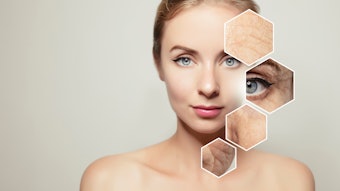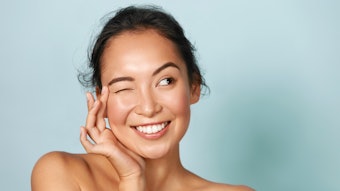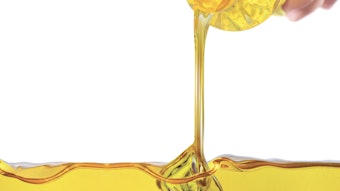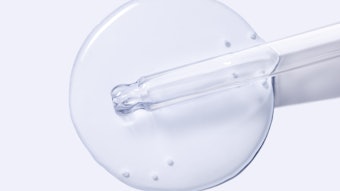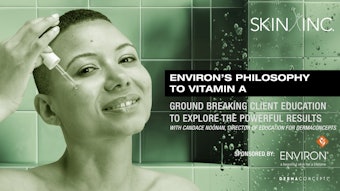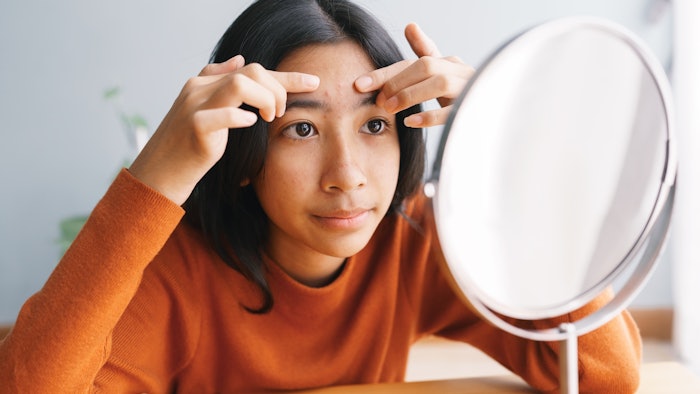
As an esthetician, have you found yourself scrolling through social media and feeling frustrated by the often misleading information on skin care treatments and products recommended by influencers without an esthetic license? There are many trendy products that go viral on social platforms, with the most recent string grabbing the attention of a younger population of consumers.
Creators on these apps have shared personal accounts of interactions in beauty retailers like Sephora and Ulta, in which tween and teen customers are purchasing skin care products that are aimed for more mature age ranges. The specific products that have become all the rage with this clientele contain potentially harmful ingredients like retinol, added fragrances and harsh exfoliants.
This miseducation has prompted a need in the esthetic industry for the professionals to step up and be the voice of reason for teen/tween clients, or for the parents of the clients of this age group. We spoke with leading voices in the industry on the ingredients to warn the harsh effects of, as well as tips for providing education on social media that sets the record straight.
1. Retinol/Retinoids
When dangerous ingredients for adolescent skin comes to mind, we can all agree retinol is at the top of the list. While retinol holds endless benefits for maturing skin, it can cause adverse effects for tween users. We gathered insight from industry pro, Lauren Snow, Director of Brand Management & Communications for Circadia on the ingredient.
"The use of retinols by tweens who are not under the care of a skin care professional or doctor are at particular risk for further damage to the skin by overuse, not following intended instructions (pea size application vs. several “influencer sized pumps") and not protecting the skin from the sun," said Snow. "These products increase the cellular turnover rate, and these kiddos don’t need a higher cell turnover—or thinner skin."
We also spoke with Melissa Morris, Director of East Coast Education for Pevonia Natural Skincare for insight into the dangers of retinol for this age group. "Tweens and teens often gravitate towards retinol and face scrubs to exfoliate the skin, in hopes of reducing breakouts and discolorations, and getting that “glass skin” look," said Morris. "Retinol can be great for select skins in need of de-aging, but for young fragile and sensitized skin, it can lead to irritation and inflammation."
2. Fragrances
Those that opt for natural skin care products know the potential dangers that added fragrances can hold. For your clients who don't suffer from sensitive skin, fragrances could have no effect on their skin. The same cannot be said for compromised, sensitive or tween/teen skin. The chemicals that can be found in these fragrances have the potential to cause increased irritation or reactions.
According to Morris, fragrances contribute to a product’s aroma, but may increase sensitivities and lead to irritation or dermatitis. She recommends esties help their tween clients invest in products that are natural and fragrance free, only incorporating aromas from botanical extracts.
Related: Love it or Leave It: Professional Advice on TikTok Skin Care Trends
3. Chemical Exfoliants
This age group may be dealing with inflammatory skin conditions, but harsh solutions are not the answer. Teen/tween clients are often dealing with dry or sensitive skin, and should be treated accordingly. Lead Educator and Acne Expert from Face Reality, Alex Hernandez, shared her advice regarding the use of chemical exfoliants on teen skin.
"I would advise against tweens and teens using stronger exfoliants such as glycolic and retinoic acid," said Hernandez. "Glycolic acid is a more aggressive alpha hydroxy acid with its small molecular structure, meaning it can penetrate quickly and deeply."
Aggressive face scrubs with large or unpolished granules have the potential to create micro-tears in the skin, which can lead to a compromised skin barrier and extend skin's healing process, according to Morris. "Alternatively, smooth, small, and polished granules, such as walnut shell powder, are tween and teen skin safe," said Morris. "These types of scrubs provide a thorough and gentle exfoliation without creating damage to the skin."
What to Recommend Instead
Tween/teen clients are still in need of cleansing and gentle exfoliation to treat and prevent inflammatory skin conditions. For those experiencing a common condition like acne, Hernandez recommends using something gentle like l-mandelic acid at a low percentage or a gentle salicylic product. Lactic acid is also a great alternative to gently exfoliate the skin and prevent discolorations without leading to sensitivities.
Esties will have to work to find the right balance of ingredients that works for their teen clients. Their treatments should remain customized like mature clients, but also keep these ingredients restrictions in mind. Morris recommends a natural, professional skin care regimen that is dedicated to sensitive or young skin. She also shared that products that reduce sebum like lemon and grapefruit peel oils are a safe choice for this age group.
It's also important to remember that teen clients may know of trending products they found on social media, but they are not informed on how those products can affect their skin barrier. Snow shared that many tween clients most likely don't have an ample SPF routine, which can cause further damage after sun exposure.
"It’s essential to teach tweens and teens the importance of trusting professionals who are able to look at their skin and decide what is best, not look at someone’s TikTok like count and letting them decide what’s best," said Snow. "If tweens and teens want to get in on the skin care trends, a gentle cleanser, a skin-type appropriate moisturizer and an SPF can be a great start."
Why This is Important to the Spa Professional
While tween/teen clients might not be your target clientele, this age group still experiences serious skin concerns caused by hormonal changes and environmental aggressors. It is vital to teach your teen clients the basics of skin education and the products that can treat their skin concerns while not preventing any future damage. Not only will this protect their skin from harsh ingredients that can cause adverse effects, it also promotes skin health across a generation of clients that is shown to prioritize self-care and preventative skin care.


